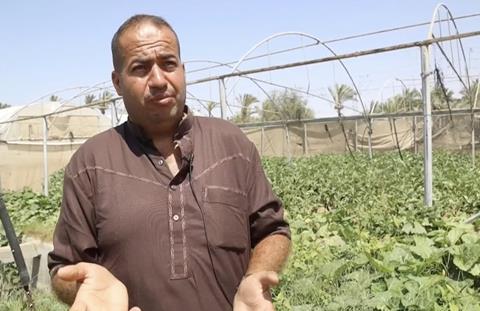With over half of cropland destroyed by the ongoing conflict with Israel, as well as a third of its greenhouses, Gaza faces massive food insecurity, according to the FAO
The Food and Agriculture Organisation of the United Nations has warned of the dire state of food production in the Gaza Strip as a result of Israel’s continuing military assault on the densely populated enclave since 7 October.
“The cessation of hostilities, sustained humanitarian access throughout the Gaza Strip, and the restoration of food production systems are essential to reduce the risk of famine and provide a basis for recovery,” it stated.
UN food agency the World Food Programme this week said it was pausing personnel movements in Gaza after one of its vehicles was targeted by Israeli troops as it approached a military checkpoint.
According to the FAO, satellite imagery has revealed widespread damage to agricultural infrastructure throughout Gaza, with the destruction of “at least 57 per cent of its cropland, damage to 33 per cent of its greenhouses, and significant damage to wells and solar panels”.
Gaza was once largely self-sufficient in vegetables and also produced a large amount of fruit, but the conflict has largely destroyed the enclave’s agrifood system, leading to poor nutrition and food insecurity, the FAO warned.

Mohamed El-Yaty, a farmer from Deir Al-Balah in central Gaza, said he had been able to farm just half his land, lowering his yields of aubergines, cucumbers, peppers and tomatoes.
“Before the war, we had food — it was available and accessible,” he told the FAO. “Meat, vegetables, everything was available. Good food. Today, everything is canned.
Shortages of water are severe, the FAO said, while electricity shortages have disrupted refrigeration and irrigation, severely affecting agricultural livelihoods.
According to data published by the Integrated Food Security Phase Classification global initiative on 25 June, around 96 per cent of the population of Gaza is expected to experience “high levels of acute food insecurity” by September.
While the FAO helps Gazan farmers to resume vegetable, meat and fish production, Israeli settler violence, property destruction and land confiscation are hurting agricultural activity in the West Bank, where access to natural resources and markets was already limited.
“The Israeli occupation has put so many restrictions on farmers, especially in areas behind and just outside the separation wall,” Oxfam’s Feda Al Husseini told Ireland-based The Journal.
West Bank grower Odai al Taneeb, whose farm was used prior to the conflict as an Oxfam demonstration site to train university students and other farmers, said local farmers finally returned to their land to find greenhouses and irrigation systems destroyed.
Speaking to The Journal, Oxfam’s Zahia Salem described the economic situation in the West Bank as “catastrophic”.
“Because the economic and financial situation is so bad and there isn’t as much support from international NGOs and from the government itself, it’s harder for farmers to rebuild,” Salem said.



